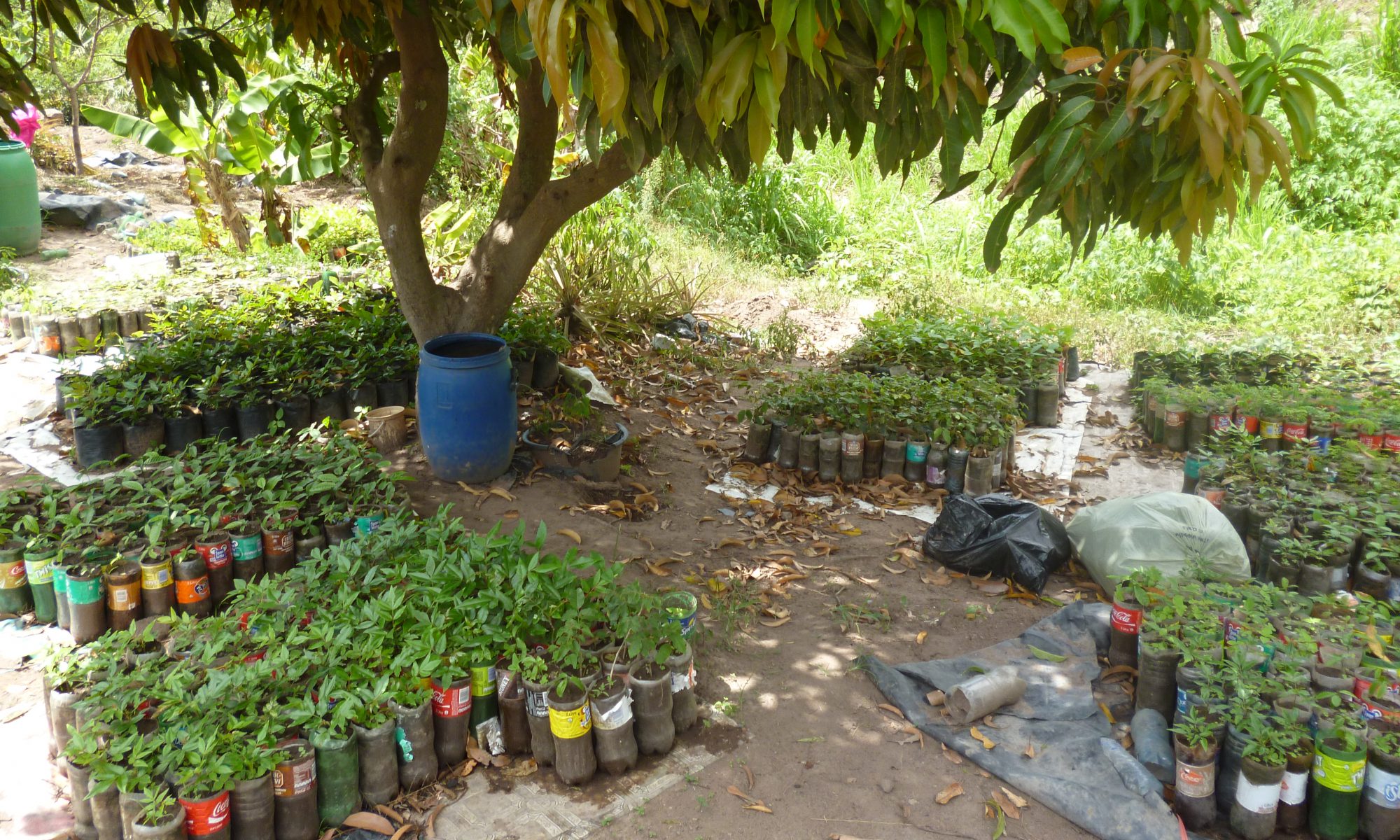Research Master’s student and former SARChI research assistant recently reflects on his experience at a workshop (13-14 June 2016) titled, “Zimbabwe’s Despondent Political Economy”, a workshop to honour the late Professor Sam Moyo.
On 13-14 June 2016, the University of KwaZulu-Natal’s School of Built Environment and Development Studies (SoBEDS) and Centre for Civil Society (CCS) hosted a workshop in Durban to honour the late Professor Sam Moyo. The workshop was titled, “Zimbabwe’s Despondent Political Economy” and it sought to remember and build upon this Professor’s academic contributions to Africa’s political economy as well as political ecology. I was privileged to not only attend this workshop but to have an opportunity to present some elements of my research on the second day. The South African Research Chair (SARCHi) team was well represented at this workshop with Danford Chibvongodze, Freedom Mazwi, Joy Mabenge, Kathleen Diga and Professor Sarah Bracking all in attendance. Some of the work they presented will be highlighted below.
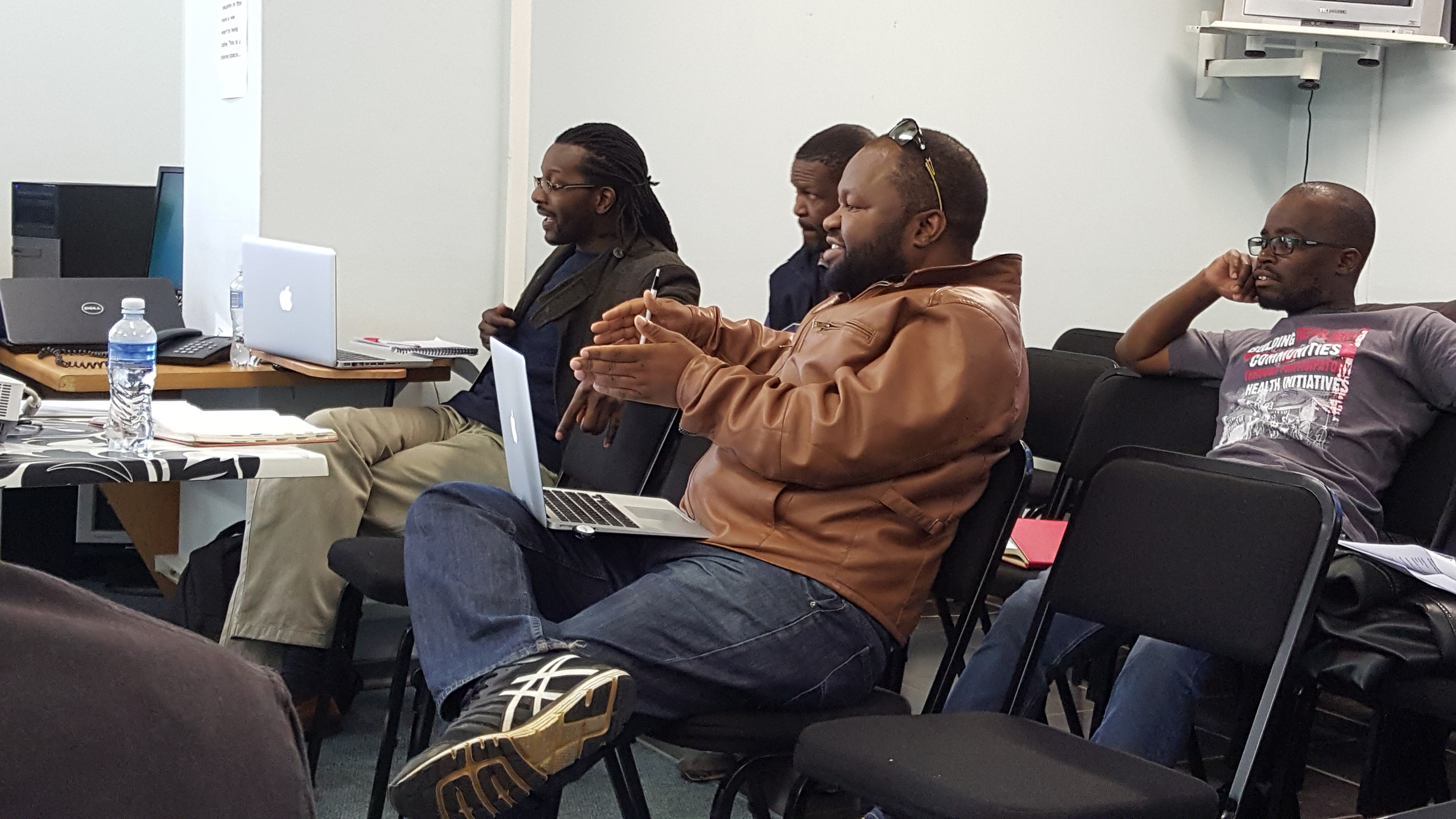
I have never been one to follow the road that many have travelled, hence this piece will be structured in a seemingly random way to allow the various presentations to form a complete picture of my experience and interpretation of the workshop. One of the concluding remarks in my presentation was that the crisis in Zimbabwe should be seen and addressed in a holistic manner. It is not only a political crisis but a socio-economic one and it is worsened by a crisis of accumulation and desperation. This workshop in so many ways reinforced this argument, but at the same time, challenged those present to either develop new ways or revamp old ways to understand the Zimbabwe experience. The regional context is unique when attempting to apply some of the theories already in existence and perhaps falls short of capturing these experiences. A look at Joy Mabenge’s presentation, “Political Transitions and Social Justice” highlights this. Please forgive me if I have made a ‘boat out of reeds,’ but something that caught my attention in his presentation was around political transition. He argued that Zimbabwe was not easily identifiable or classified in regards to which transition it was in within the existing frameworks of transitions.

Freedom Mazwi, a former student of Professor Sam Moyo and current PhD student under SARChI, presented on the “Agrarian Structure and Social Stratification in Chiredzi”. He brought our attention to the legacy of Zimbabwe’s land reform, the challenges and prospects for farmers especially in the Chiredzi district. It gave me insight around the nexus between politics and agrarian prospects within the post-colonial state. What stood out for me was his explanation of how a dual agrarian structure was replaced by a tri-modal structure with competing modes of production. It unpacked the complexity around the social stratification of resettled farmers that has been seemingly oversimplified by media, and at times those aligned with political parties in Zimbabwe. Adrian Nel also presented on the “Land Reform in Matobo District, Matabeleland” reinforcing some of the complexities that were arising as well as the challenges and opportunities.
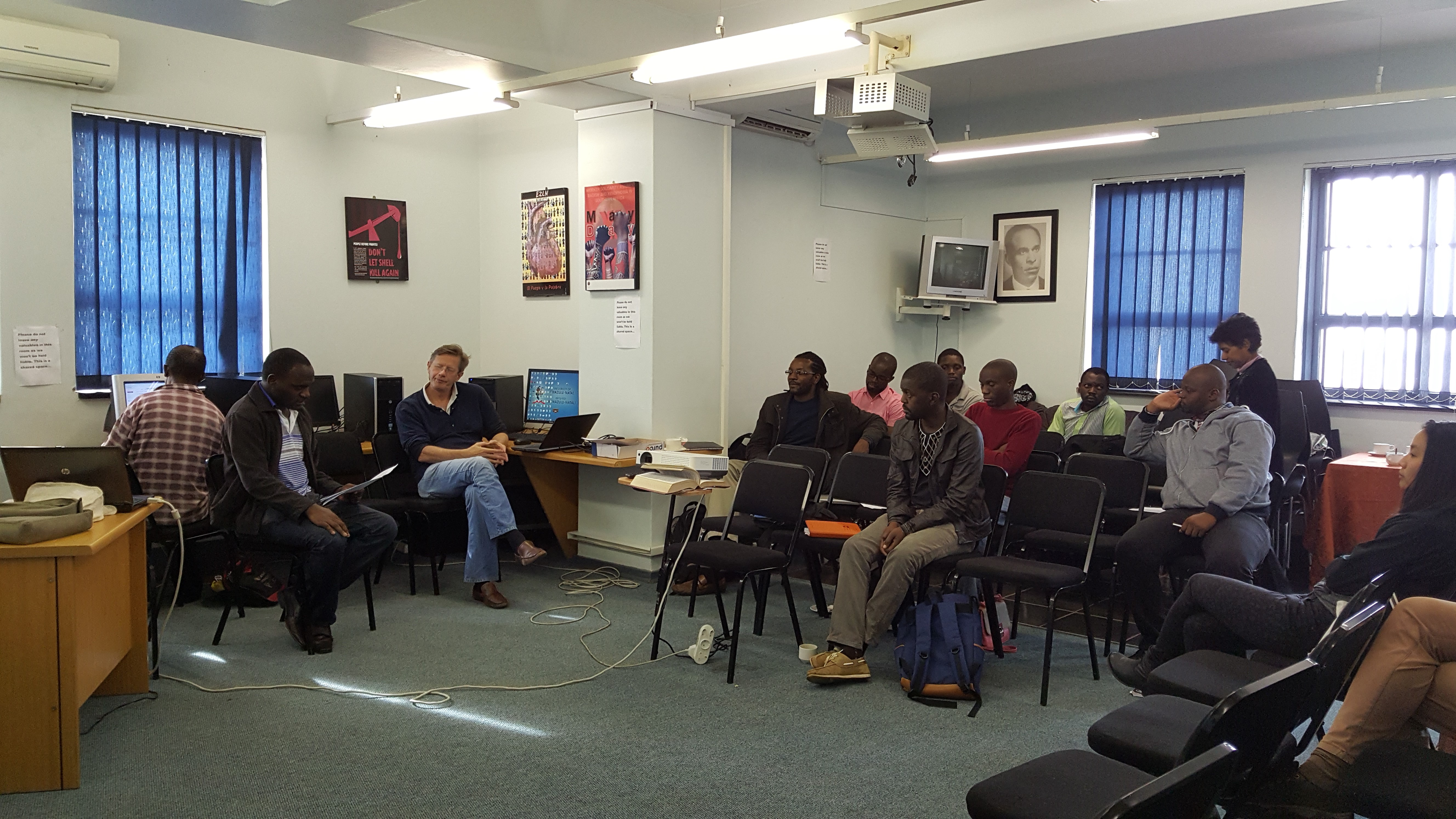
Danford Chibvongodze presented on “The Street Vendors of Bulawayo” this was a part of his PhD thesis “Rethinking “Informality” and “Street Trading” in a Despondent Urban Economy: the Case of Bulawayo”. While Danford touched on a number of things, something that resonated with me was there is growing realisation that Bulawayo’s informal economy might well be the ‘real economy,’ and he challenges us to stretch this thinking a little further. I felt that in the case of Zimbabwe or other countries in an economic crisis, more attention should be paid to informal economies not as a ‘cancer’ or other activities outside of the norm of which needs to be ridden. But rather, informality could be approached as an adaptive measure that citizens participate in for survival within an economic crisis that was likely not from their own direct actions. Similarly along these lines, Martin Magidi presented on “Sustaining livelihoods in De-industrialising Norton” presumably to see how people survive in a town where formal jobs are on the decline.
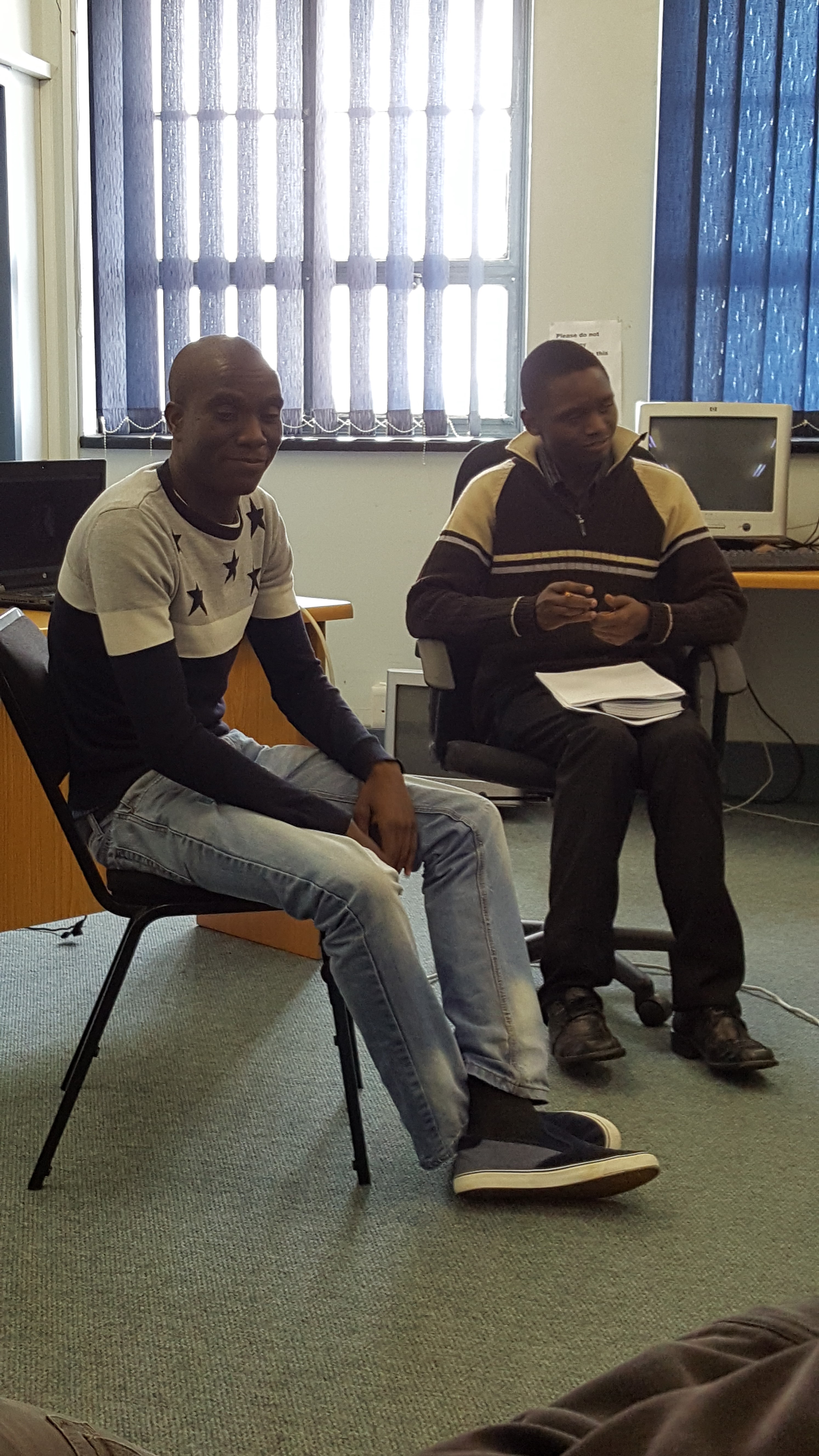
Professor Sarah Bracking presented her new book, “The Financialisation of Power: How Financiers Rule Africa” (published under Routledge 2016). To be honest, some of it was beyond my understanding, but like a sponge dipped in water, I did retain something. Unfortunately or fortunately that which was retained was tainted by my own preconceived notions. I won’t attempt to explain the whole rational behind her argument or summaries, as I may likely be way off. That, however, won’t stop me from expressing what I got from the presentation. Firstly, I picked up that the word ‘financialisation’ has been used in various ways, hence the concept itself is a contested one. Secondly, the literature around financialisation has been a critique of its effects without explicitly dealing with what it actually is. Financialisation, from my understanding, has resulted in dark pool trading, African governments bearing the brunt of costs in regards to ‘white elephants’ at the expense of their citizenry, and the proliferation of illicit flows of cash to offshore accounts. For me, her book spoke to the global super structure, and how it affected African countries in regards to flows of capital.
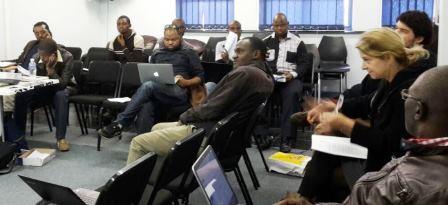
Briggs Bomba’s presentation was called “Stop the Bleeding of Illicit Financial Flows (IFFs) from Harare,” and it touched close to home. It was an eye-opening presentation as it unpacked why there were issues such as cash flow shortages in Zimbabwe. Currently, these effects have led to the potential introduction of Bond notes which have in turned led to the rise of social movements such as the hashtag campaign #thisflag. Briggs, in his work, also highlights the implication of IFFs on development and ways of arresting these outward flows.

Farai Maguwu’s presentation on “Conflict Diamonds and Zimbabwe’s New Poverty” led to robust discussions about how the political economy sustains a regime through a system of patronage and what possible strategies are there for its resolution. His extensive work which he discussed gave us first-hand accounts of what has been going on in Chiadzwa, and its implications for women and locals at large.
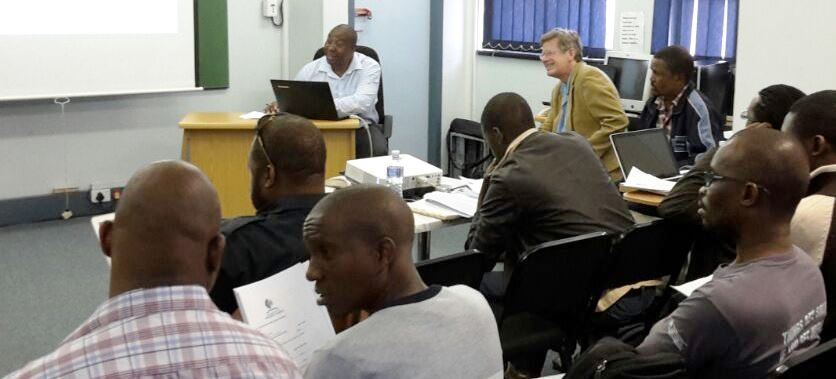
I can by no means exhaust all that was discussed and presented, but I shared some of the things that caught my ear. When some of the presenters read this, they may say that is not what I meant to say or that was not the focus of my presentation, and for that, I APOLOGISE. I will still stand firmly alongside what I feel is a reflection of my time at the workshop. The experience itself was rich and highly rewarding as I got the chance to hear first accounts of things that I only read about. I had the privilege of discussing the political economy of Zimbabwe and strategies on ways to resolve political and socio-economic issues in Zimbabwe.
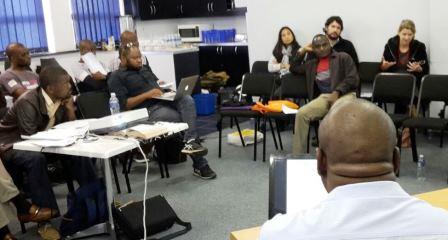
You can download the presentations in the link below
Sam Moyo Memorial Workshop Presentations at UZKN CCS(1)
Malcom Munyaradzi Chiororo is currently doing his masters in Development Studies at the University of KwaZulu-Natal. He is a Zimbabwe national, his research interests include issues of social justice, inequality and political economy in post-colonial states with an emphasis on Southern Africa.

